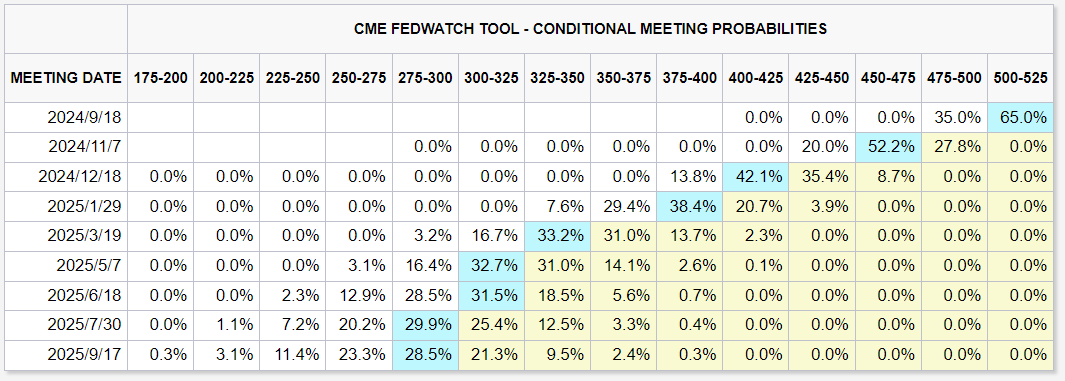Big Banks Disappoint: GS, JPM in Lower Estimates
On Sep 10, the broader U.S. stock market was higher overall, but the energy and financial sectors pulled back. The slide in the energy sector $Energy Select Sector SPDR Fund(XLE)$ was largely due to the recent sharp pullback in oil prices, while the pullback in the financial sector $Financial Select Sector SPDR Fund(XLF)$ , especially for the large banks $JPMorgan Chase(JPM)$ $Goldman Sachs(GS)$ , came as a bit of a surprise.
Goldman Sachs' Headwind
Goldman Sachs closed down 4.39%, mainly due to its CEO David Solomon's remarks at the Barclays conference.He noted that the firm's trading unit is expected to decline 10% year-over-year in the third quarter, largely due to weakness in its fixed income business.
Goldman Sachs, a key component of the Dow Jones Index, has risen 28% so far this year and has been a major force in driving the Dow to new highs.The strong performance of its earnings is attributed to:
a recovery in the main investment banking business
Growth in asset management business in the high-yield era
Proactive exit from troubled consumer business
However, Solomon proactively "managed investor expectations" at the conference, lowering guidance for future results for a number of reasons:
A high base in the same period last year (US bond yields were at their highest)
Challenging and volatile current trading environment
Slowdown in private equity firm activity
All of these factors are closely linked to the high interest rate environment, with pressures on fixed income markets stemming largely from recessionary expectations, leading to heightened investor concerns about credit risk.
JPMorgan Chase's Situation
Similar to Goldman Sachs, JPMorgan Chase's stock price has slipped.Daniel Pinto, the bank's president and chief operating officer, said the market's forecast for net interest income in 2025 was too optimistic.
The current consensus forecast for net interest income in 2025 is $90 billion, which Pinto described as "unreasonable" because interest rates will fall, weakening the pressure to reprice deposits and dragging down net interest income growth.
Third-quarter investment-banking expenses are expected to rise 15 percent, well below analysts' expectations.
Revenue in the trading division is expected to grow 2%, again below analysts' expectations.
Why the sudden lowering of expectations?
Despite the prospect of a rate cut becoming clearer and the fact that the interest rate market has implied that the level of interest rates will fall to 3% by the end of next year, the market has not yet lowered its expectations for bank results, which worries several big investment bank executives.

Reasons for the market's over-optimism include:
Potential impact of a slowing economy: Although consumer spending remains strong, a slowing economy may affect future consumer behavior, particularly with respect to discretionary spending, where consumers' excess savings have been largely exhausted.
Intense competition in the market: Intense competition in the retail banking and credit card markets may make it difficult for banks to achieve their market share targets.
Integration challenges: While there are potential benefits to the integration of commercial banks with investment banks, they may also face cultural and operational challenges that may affect efficiency gains.
External uncertainty: Uncertainty in the geopolitical and economic environment could affect corporate confidence and investment decisions, which in turn could affect J.P. Morgan's business growth.
Strengths of large banks
Despite the challenges, large banks still have some advantages:
Recovery of investment banking: With the interest rate cut cycle, the cost of corporate finance has fallen, further facilitating transactions such as financing, mergers and acquisitions, and IPOs.
Business consolidation: For example, JPMorgan Chase has merged its commercial and investment banking into a new business unit to better serve clients and improve efficiency, while achieving growth through multi-channel marketing and new products.
Wealth management market: In the wealth management market below $100,000, large banks currently still have a small market share and can increase their client reach in the future through branch networks and advisory services.Due to their better core infrastructure, large banks can expand in more segments such as real estate and private credit markets in the future.
Impact on the banking sector and investment recommendations
The recent market volatility has had a noticeable impact on the banking sector as a whole.The downward revision of Goldman Sachs and JP Morgan's expectations may trigger a market reassessment of other banks' performance, especially in the context of a slowing economy and falling interest rates.Investors need to pay attention to the following points:
Changes in market sentiment: the expected downward revision of large banks may lead to a shift in market sentiment to caution in the short term, and investors may revisit the investment value of bank stocks.
Direction of interest rate policy: The future interest rate policy will directly affect the profitability of banks, and investors should pay close attention to the movement of the Federal Reserve as well as changes in economic data.
Selection of quality banks: In the current environment, investors are advised to focus on those banks with strong competitive advantages in areas such as wealth management and investment banking.
In summary, although the banking sector is currently facing challenges, there is still potential for quality banks, supported by economic recovery and interest rate policies.
Disclaimer: Investing carries risk. This is not financial advice. The above content should not be regarded as an offer, recommendation, or solicitation on acquiring or disposing of any financial products, any associated discussions, comments, or posts by author or other users should not be considered as such either. It is solely for general information purpose only, which does not consider your own investment objectives, financial situations or needs. TTM assumes no responsibility or warranty for the accuracy and completeness of the information, investors should do their own research and may seek professional advice before investing.


@TigerNews_SG [What] [What] [What]